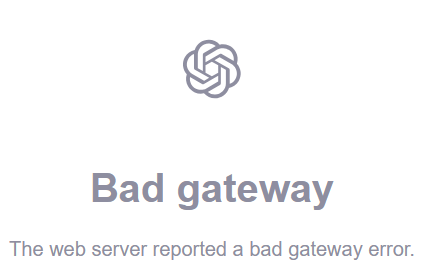As we venture further into the 21st century, the landscape of education continues to evolve at a rapid pace. With technological advancements, changing societal needs, and an increasingly interconnected world, the future of education holds endless possibilities. By the 22nd century, we can expect a transformative shift in how learning occurs, what is taught, and who is involved in the educational process. This article explores key trends and innovations that will shape education in the 22nd century.
1. Technology-Driven Learning
1.1. Artificial Intelligence and Adaptive Learning
By the 22nd century, artificial intelligence (AI) will play a pivotal role in education. AI-powered platforms will create personalized learning experiences tailored to each student’s needs, strengths, and learning pace. These adaptive learning systems will analyze student performance in real-time and adjust content accordingly, ensuring that learners are always challenged without becoming overwhelmed.
- Example: An AI tutor could identify areas where a student struggles and provide targeted exercises or alternative explanations, promoting mastery of subjects.
1.2. Virtual and Augmented Reality
Virtual reality (VR) and augmented reality (AR) technologies will revolutionize the learning experience by allowing students to immerse themselves in interactive, simulated environments. These tools will enable experiential learning, where students can explore historical events, conduct scientific experiments, or engage in complex problem-solving scenarios.
- Example: A history class might take a virtual field trip to ancient Rome, allowing students to walk the streets, visit landmarks, and interact with virtual inhabitants to gain a deeper understanding of the era.
1.3. Enhanced Online Learning Platforms
As online education continues to grow, 22nd-century learning platforms will be more sophisticated, providing interactive, engaging, and collaborative learning experiences. Students from around the world will collaborate on projects in real time, accessing a wealth of resources and expertise regardless of their geographic location.
- Benefit: This global classroom will foster cross-cultural understanding and collaboration, preparing students for a more interconnected world.
2. Personalized and Lifelong Learning
2.1. Customized Learning Paths
Education in the 22nd century will prioritize personalized learning paths, where students have greater agency over their educational journeys. Instead of a one-size-fits-all curriculum, learners will choose courses and projects aligned with their interests and career aspirations, allowing for more meaningful and relevant experiences.
- Example: A student interested in environmental science could design a unique curriculum that combines biology, policy studies, and hands-on sustainability projects.
2.2. Emphasis on Lifelong Learning
The rapid pace of technological change and the evolving job market will necessitate a culture of lifelong learning. By the 22nd century, continuous education will be the norm, with individuals regularly updating their skills and knowledge throughout their lives. This will lead to the emergence of micro-credentials and competency-based assessments as more prevalent forms of validation.
- Benefit: Lifelong learning will empower individuals to adapt to changing industries and pursue new career opportunities without starting over.
3. Global Collaboration and Cultural Exchange
3.1. Cross-Border Education Initiatives
As globalization continues to shape the world, education will become increasingly collaborative and cross-border. Students from different countries will engage in joint projects, cultural exchanges, and virtual collaborations, gaining insights from diverse perspectives and learning to navigate a multicultural landscape.
- Example: A high school student in the United States could collaborate with peers in Japan on a technology project, sharing ideas and resources while learning about each other’s cultures.
3.2. Global Citizenship Education
Education in the 22nd century will place a strong emphasis on global citizenship. Students will learn about pressing global issues, such as climate change, inequality, and human rights, and will be encouraged to take action through service-learning projects and advocacy initiatives.
- Benefit: This focus on global citizenship will empower students to become informed, engaged citizens who are capable of addressing the challenges facing the world.
4. The Role of Educators and Mentors
4.1. Redefining the Teacher’s Role
The role of educators will evolve from traditional instructors to facilitators and mentors. Teachers will guide students in their personalized learning journeys, helping them set goals, develop critical thinking skills, and navigate resources. The emphasis will shift from content delivery to fostering creativity, collaboration, and self-directed learning.
- Example: A teacher might act as a mentor, providing support and resources while encouraging students to pursue independent projects and explore their interests.
4.2. Community and Industry Partnerships
Education will increasingly involve partnerships between schools, businesses, and communities. Collaborations will provide students with real-world experiences, internships, and access to industry expertise. These partnerships will help bridge the gap between education and employment, ensuring that students acquire relevant skills and knowledge.
- Benefit: Such collaborations will enhance the employability of graduates and strengthen ties between education and the workforce.
5. Ethical and Equity Considerations
5.1. Addressing Digital Divide
While technology will drive education in the 22nd century, addressing the digital divide will be crucial. Ensuring that all students have access to the necessary technology and resources will be a priority, preventing disparities in educational opportunities based on socioeconomic status.
- Challenge: Policymakers and educators will need to work together to implement solutions that provide equitable access to technology and high-quality education.
5.2. Ethical Use of Technology
As technology becomes more integrated into education, ethical considerations will come to the forefront. Questions regarding data privacy, surveillance, and the potential for AI bias will need to be addressed. Educators will play a vital role in teaching students about responsible technology use and fostering a culture of ethical awareness.
- Benefit: By prioritizing ethical considerations, educators can prepare students to navigate the complexities of a technology-driven world.
Conclusion
The 22nd century promises a transformative vision of education, one that embraces technology, personalized learning, and global collaboration. While challenges such as equity and ethical considerations must be addressed, the potential for a more engaging, relevant, and inclusive educational experience is vast.
As we move toward this future, it is essential for educators, policymakers, and communities to work together to create an educational landscape that empowers students to thrive in an ever-changing world. The future of education holds the promise of unlocking the full potential of every learner, preparing them not just for careers but for a life of inquiry, creativity, and active global citizenship.



